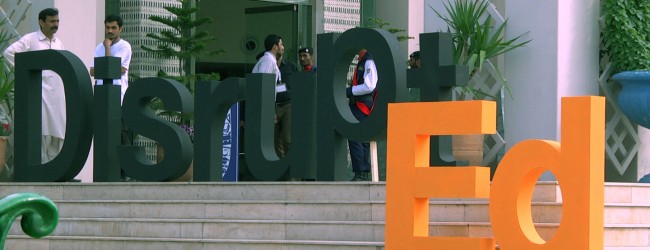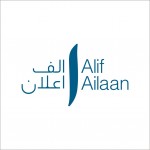
By Dr. Athar Osama
In the pecking order of fundamental rights, such as, that of freedom, security, liberty and religion, a right to education did not feature, until quite recently. Things like life and liberty which were instrumental to sustaining a life, seemed much more important than an education, which was almost seen as a choice. Not anymore! In the age of science and knowledge, an education (or the lack of it), can be all that differentiates the haves from the have-nots, in most senses of the word. An education gives, one, a foothold on the economic ladder, as well as the ability and dignity, to claim and fight for the all the other rights. Without an education, one is (almost) condemned to a marginal existence.
A fundamental right
In 1947, the country’s founder Mohammad Ali Jinnah said:
“Education is a matter of life or death for Pakistan. The world is progressing so rapidly that without the requisite advance in education, not only shall we be left behind others but we may be wiped out altogether.”
While this law was enshrined in the constitution, it took the country more than 65 years to declare, unequivocally, that education is a fundamental right for all its young citizens. But even today, the lip service continues. Pakistan ranks second in the world, just behind Nigeria – another Muslim country – when it comes to the number of kids who are out of school. In Pakistan more than 25 million children (aged 5-16) are out of school and as many as 7 million of these are of the primary school going age. These children – unless there is a radical change in the way education is talked about and delivered in this country – are all but condemned to a life of poverty and deprivation.
The cost to the country is also dilapidating. Not only is the country unable to take advantage of its ‘demographic’ dividend, but the economic opportunity cost of not educating Pakistan’s children, is the same as suffering a 2010 flood every single year. Those who seem to care have declared an ‘educational emergency’ but one is still nowhere to be seen.
“But if there is, indeed, an educational emergency in the country, why don’t we see it in the actions of our politicians and civil society,” asked Mosharraf Zaidi, the Campaign Director of Alif Ailaan – a donor funded advocacy group aimed at bringing  education to the forefront of political and media discourse in the country.
education to the forefront of political and media discourse in the country.
Indeed, a general culture of neglect and negligence continues.
Ready for disruption?
In this backdrop, Alif Ailaan launched a campaign to think about innovative ways to disrupt the status quo on education. The campaign was organized around three important conversations, namely:
The idea is quite simple. For years and years, there has not been a substantive enough change in the status quo of education as all traditional approaches to try to generate support for education had failed abysmally. Some fresh ideas could potentially energize the debate and support for this important cause.
The event noted that “without a ‘disruption’ in the way things are, a fundamental change that alters the very basics, there is little chance of Pakistan being able to deal with the education crisis.”
Drawing from Harvard University’s famous (now infamous) model of ‘Disruptive Innovation’, the launch event declared that a disruption in education was inevitable. And there are good reasons for believing so.
Education clearly resembles an ‘industry’, where the incumbent (government) provider has failed to deliver the service demanded by millions of consumers. That the barriers to entry are quite low and that an outside (private) provider, can launch a service aimed at non-consumers and rapidly improve quality to threaten the bigger market.
Technology is another driver that is likely to have a formidable impact, on whatever happens in the educational sphere in the years to come. There are already telltale signs that technology will play an undeniable influence. The growing popularity of Khan Academy, Coursera, EdX, and Udacity, is bringing about a revolution in higher education and even though the direction and extent of this change is still not certain, what is amply clear is, that technology will transform higher education into something different than what it has been, for several decades before.
The fate of basic and primary education can’t be any different.
Desperate times, desperate measures
Desperate times call for desperate measures. And that is exactly what Alif Ailaan and Pakistan Innovation Foundation teamed up to accomplish through the Launch Event titled #DisruptEd. The event was meant to bring to one platform, several key leaders and educationists, in an effort to jump start debate regarding the current education scenario and what can be done about the several issues that it currently faces.
The philosophy of #DisruptEd states how “None of the major problems in education – low enrolment rates, poor quality, lack of accountability and the total absence of a robust discourse – can be solved without a bold new approach. And none of the true potential of Pakistan and its over 100 million young people can be achieved without solving the major problems in education.”
With this background in mind, #DisruptEd sought to bring public, private and non-profit sectors to the forefront and forced them to engage in a conversation, so all parties with a stake in the education system, could work together to bring about the much needed education revolution.
At the same time, #DisruptEd also broke new grounds by engaging young learners through a host of activities – storytelling, playing games,
simulation, robotics, and more – that were designed to make learning fun. It created a festival-like environment, where those whose future was being discussed, worked alongside those, who were charged with making choices and making these decisions and ensuring implementation.
The highlight of the day was a politician, who had demonstrated his commitment to improving public education in the country by taking his children off from private schools and putting them into a local public school, thereby putting pressure on the public schools administration to clean their act and deliver.
Opening Session from Alif Ailaan on Vimeo.
Nothing that this has been a difficult choice for him and his family, he stated , unequivocally, that this was the only way to reform education in the country. He is now requiring other local political leaders to follow his suit, and is proposing a bill in the parliament to require every politician and public servant to use public schools.
The result? An awakening of realities; a collaboration of different organizations to work together in supporting the cause; a recognition of current commitments and talents in the field and a much assured promise by each and every individual; whether layman or professional, to do his/her part in creating a positive disruption in education.
After all, disruption in education, is the only way to go. And this disruption can only be achieved with innovation, as Dr. Athar Osama, Founder of the Pakistan Innovation Foundation asserted, “All problems discussed today, have a single solution, that is Innovation. If we do not think out of the box for these solutions, then we will not be able to solve these problems, and
disruption in Education is the best way possible, to tackle these problems.”
#DisruptEd disrupted the conversation around education for day, if not for times to come. It was an opportunity for stakeholders to engage in conversation that should – and must – go on and lead to concrete actions and solutions.
You must be logged in to post a comment.